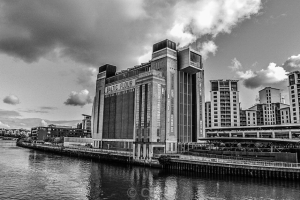 It is with great sadness that we announce the death of our beloved comrade John Hepple, a founding member of the Communist Party of Great Britain (Marxist-Leninist) who has passed away after a long illness.
It is with great sadness that we announce the death of our beloved comrade John Hepple, a founding member of the Communist Party of Great Britain (Marxist-Leninist) who has passed away after a long illness.
John was born on 2 October 1946 to a mining family in Gateshead. At the tender age of just seven, John’s father died in a tragic pit accident, leaving his mother to look after John alone. He spent his formative years growing up in Tyneside amongst the hustle and bustle of industrial England and began an apprenticeship as a steel erector. In adulthood John left the building trade and moved to factory life, starting work at the famous Baltic Flour Mill on the Tyne where he was to work for the reminder of his working life until it shut in the early 1980s. The Mill is today known as the Baltic Centre for Contemporary Art, and John like many working class men and women of his generation was pained to see a thriving workplace reinvented as an outpost for every crackpot artist to indulge their fantasy. Where John and his workmates once produced flour and animal feed there is currently an exhibition Animalesque asking puzzled Geordies to rethink the human position in the world, and if that doesn’t take your fancy Hanna Tuulikki will lecture you on the mimesis of deer dancing (the process whereby one dresses up as a deer, dances with the conviction that one truly is the spirit of the deer, and then develops the spectacle in such a way as to demonstrate the transformation from being a timid fawn to a virile adult).
Back in the real world, John Hepple like thousands of other working men and women found themselves unemployed for much of the eighties and nineties, and adding to John’s hardships would be the lingering effects of a serious stroke. Around 1996 John met local working class activist and committed communist Blanch Carpenter working in the Newcastle Unemployed Centre. Both Blanch and John threw themselves into the work of building the Socialist Labour Party when it was established on 1 May 1996 by the legendary miners’ leader Arthur Scargill. The best part of the next decade of John’s life was given to this work as the SLP grew in the north east of England and fought a number of local, parliamentary and European elections.
As a principled Marxist-Leninist, John Hepple found himself reluctantly without a political party when the SLP purged itself of communists in 2004, taking the kamikaze path of political struggle from which tailspin the SLP never recovered. John, Blanch and others, notably our deceased comrade William Hunt-Vincent, were unwilling to join any of the revisionist communist organisations whose politics differed little from those responsible for liquidating the original Communist party, and so John joined with others in establishing the CPGB-ML in 2004.
From 2004 until the final days of his life, John Hepple gave all his time, strength and talents to the CPGB-ML and its work to re-establish a real communist party in Britain, serving, for a period, on its central committee. John was proud of its successes in building a revolutionary communist party, defending the legacy of Joseph Stalin and the CPSU(b), not least its unflinching defence and popularisation of the heroic achievements of the Soviet people and Red Army. As a true internationalist John Hepple supported the revolutionary struggles of many other peoples, and his work in defence of the Democratic Peoples Republic of Korea was appreciated by many who served at the Embassy in London.
John lived the life of a communist and died a staunch Marxist-Leninist, a proletarian internationalist, a son of the working class of Gateshead. John was a link in the great chain of human progress, of proletarian struggle. His hands which until recently shook so readily the hands of communist youth, had shaken as an apprentice the overworked hands of our long-dead forefathers, our abused progenitors whose world we inherit and with whom we are united through John and through our struggle as proletarians against capitalism. When we or our children erect the socialist system in Britain, it will be a fitting monument to John and all our lost comrades.
Comments are closed, but trackbacks and pingbacks are open.